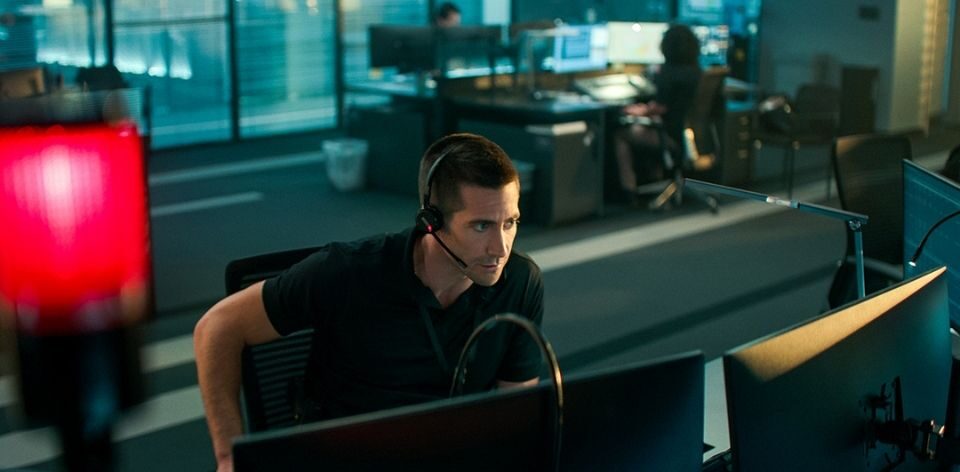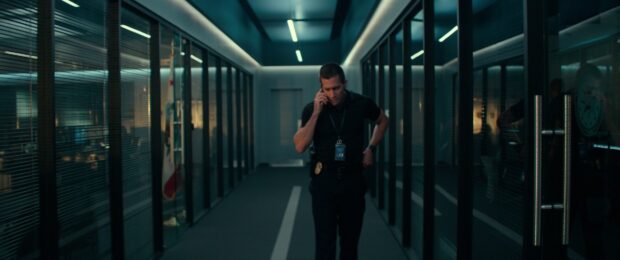The last few years have asked us re-examine media depictions of the police. While the forces are designed to ‘protect and serve,’ the reality is that this is not the lived experience for many people. While director Antoine Fuqua has previously examined the corruption of the police in Training Day, this remake of Gustav Möller’s 2018 film attempts to have its cake and eat it too.
Recently embroiled police detective Joe Baylor (Jake Gyllenhaal) is now working at a 911 dispatch call centre. As Los Angeles fires rage around them, the chaotic night becomes even more tense when he receives a call from Emily (Riley Keough), the apparent victim of an abduction. Speaking in code and trying to keep her on the line, Baylor attempts to piece together her location and get her help in time.
Antoine Fuqua’s remake of Gustav Möller’s 2018 drama is a mostly one-room thriller shot within the restrictions of the pandemic. (Ok, there’s two rooms really, but one’s kind of an annex). It uses the material well, and if you’ve not seen the original, not knowing the twists and turns going in is probably a good thing. The slick technological control room points to a well-funded police department, one that seems both eternally vigilant and visually streamlined within an inch of its life.
Wherein lies one of the first difficult issues to wrangle with in THE GUILTY. Ostensibly a hero cop storyline in the best tradition of 80s and 90s action fests, it’s an odd film to release in the current climate. Yet it might also be one of Fuqua’s subversions, as the pall of disgrace constantly threatens to smother him completely. It’s arguably the motivation for one of the film’s more frustrating elements too, as Baylor refuses to let any colleagues in on the situation and completely go it alone. “I want to help her,” he says by way of justification. “That is my job.” So, it’s either cowboy cop storyline or a clunky plot device to pave over narrative inconveniences.
Which makes it more or less an acting exercise for Gyllenhaal, who speaks to several unseen celebrities (Keough. Ethan Hawke, Peter Sarsgaard, Paul Dano, Bill Burr) via the phone. So, if you think of it as a celebrity emergency call-in podcast, Fuqua may have just recreated 2020 in under 90 minutes. There’s a handful of other people in the room with him, but most of his acting happens in the aforementioned annex. Here we see the rage sitting beneath the surface, one that results in a confession about the root of his anger.
The film’s rapid denouement, and ultimate fate of Baylor, is covered in a few off-camera lines of dialogue over a burning skyline. While this is more than likely a result of the pandemic restrictions placed on production, it all feels very anti-climactic. It also undercuts any redemption Baylor’s character might get, leaving us with a tacitly centrist conclusion regardless of whether that was Fuqua’s intention. Still, it’s a tense film that mostly uses its restrictions to its advantage.
2021 | USA | DIRECTOR: Antoine Fuqua | WRITER: Nic Pizzolatto | CAST: Jake Gyllenhaal, Ethan Hawke, Riley Keough, Christina Vidal, Mitchell Eli, Goree Da’Vine, Joy Randolph, Paul Dano, Peter Sarsgaard | DISTRIBUTOR: Netflix | RUNNING TIME: 90 minutes | RELEASE DATE: 1 October 2021






